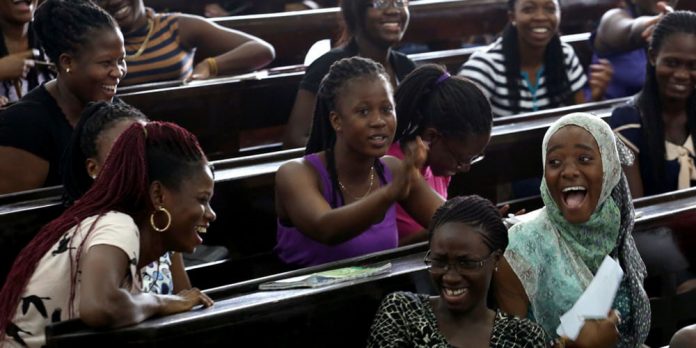
The National Accreditation Board (NAB) wants tertiary institutions to protect students, especially the females, by instituting appropriate systems, structures and also fully implementing its sexual harassment policy.
In a statement issued by the Board said:” It must be stated that sexual harassment policy is one of the key requirements which an institution must have to merit accreditation to operate as a tertiary education institution.”
The Board’s comment comes on the back of the University of Ghana interdicting Prof. Ransford Gyampo and Dr. Paul Kwame Butakor after they both featured in the BBC Africa Eye’s “Sex for Grade” exposé.
The two lecturers were caught on camera making “numerous inappropriate demands” from undercover journalists from the BBC who posed as students.
A statement signed by Dr. Kingsley Nyarko, Acting Executive Secretary of NAB said: “As the regulator of tertiary education, the National Accreditation Board is appalled by the potential damage that this investigative piece could do to the reputation of University of Ghana and seriously implore all institutions to protect students, especially the females, by instituting appropriate systems, structures and strengthen and fully implement its sexual harassment policy.
“The Board wishes to state emphatically that it will not countenance any inappropriate behaviour, which has the tendency to compromise teaching and learning, which ultimately could affect the quality and standard of tertiary education in Ghana.”
Below is the full statement
TO: ALL MEDIA HOUSES
PRESS STATEMENT
PROTECT ALL STUDENTS
ACCRA, OCTOBER 09, 2019
The attention of the National Accreditation Board (NAB) has been drawn to a BBC documentary entitled ‘Sex for Grades’ which involved some lecturers of the University of Ghana and the University of Lagos, Nigeria.
As the regulator of tertiary education, the National Accreditation Board is appalled by the potential damage that this investigative piece could do to the reputation of University of Ghana and seriously implore all institutions to protect students, especially the females, by instituting appropriate systems, structures and strengthen and fully implement its sexual harassment policy.
The Board wishes to state emphatically that it will not countenance any inappropriate behaviour, which has the tendency to compromise teaching and learning, which ultimately could affect the quality and standard of tertiary education in Ghana.
It must be stated that sexual harassment policy is one of the key requirements which an institution must have to merit accreditation to operate as a tertiary education institution.
Students are hereby encouraged to acquaint themselves with the sexual harassment policy of their institutions, must be bold to report such cases to the appropriate offices and avail themselves to its grievance resolution procedures.
…. Signed…
DR. KINGSLEY NYARKO
AG. EXECUTIVE SECRETARY
MEDIA CONTACT:
LAWRENCE KWARTENG-ASHIA
0243420103



